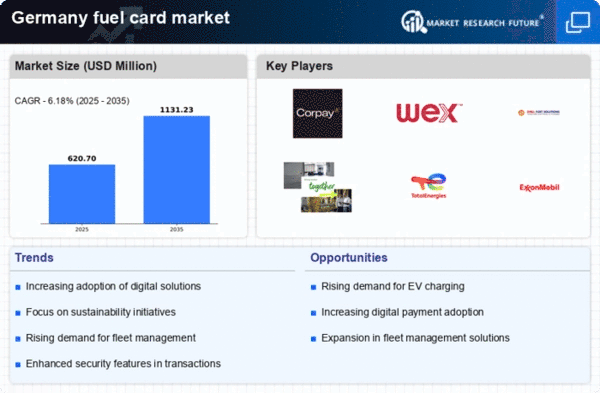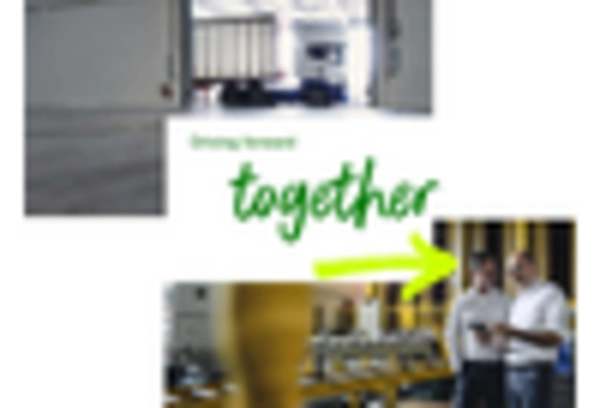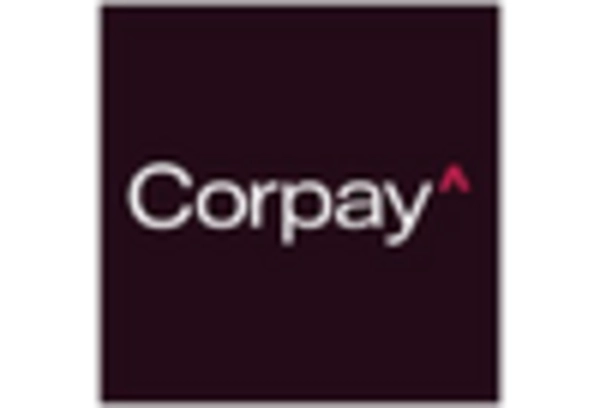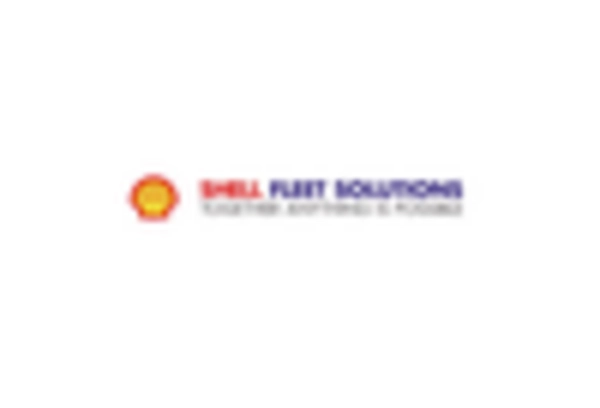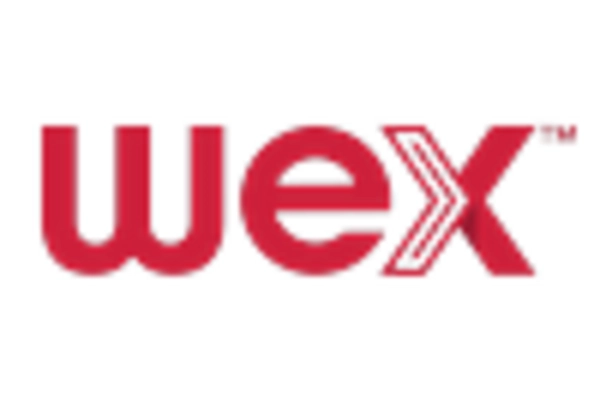Rising Fuel Prices
The fuel card market in Germany is experiencing a notable impact from the rising fuel prices. As fuel costs continue to escalate, businesses are increasingly seeking ways to manage their fuel expenditures effectively. Fuel cards provide a mechanism for companies to monitor fuel consumption and control costs, which is particularly crucial in an environment where fuel prices have surged by approximately 20% over the past year. This trend indicates a growing reliance on fuel cards as a strategic tool for financial management within the fuel card market. Furthermore, the ability to access detailed reports on fuel usage allows companies to identify inefficiencies and optimize their operations, thereby enhancing their overall profitability.
Digital Payment Trends
The fuel card market in Germany is adapting to the rise of digital payment trends, which are transforming the way transactions are conducted. With the increasing prevalence of contactless payments and mobile wallet solutions, fuel cards are evolving to incorporate these technologies. This shift enhances convenience for users and aligns with consumer preferences for seamless payment experiences. The fuel card market is likely to see a surge in adoption as businesses seek to leverage digital payment capabilities to streamline their operations. Furthermore, the integration of digital payment options can improve transaction security and reduce the risk of fraud, making fuel cards an even more attractive option for companies managing their fuel expenses.
Government Regulations
The fuel card market in Germany is significantly influenced by government regulations aimed at promoting transparency and accountability in fuel consumption. Recent legislative measures have mandated stricter reporting requirements for fuel usage, compelling businesses to adopt fuel cards as a means of compliance. This regulatory environment fosters a greater demand for fuel cards, as they facilitate accurate tracking and reporting of fuel expenses. Additionally, the implementation of environmental regulations encourages companies to adopt more sustainable practices, further driving the adoption of fuel cards. The fuel card market is thus positioned to benefit from these regulatory changes, as businesses seek to align with compliance standards while managing their fuel costs effectively.
Fleet Management Solutions
The integration of advanced fleet management solutions is reshaping the fuel card market in Germany. Companies are increasingly recognizing the value of combining fuel cards with fleet management systems to enhance operational efficiency. This synergy allows for real-time tracking of fuel consumption, vehicle performance, and driver behavior, which can lead to significant cost savings. The fuel card market is witnessing a shift towards comprehensive solutions that not only streamline fuel purchasing but also provide insights into overall fleet operations. As businesses strive to optimize their logistics and reduce operational costs, the demand for integrated fuel card and fleet management solutions is likely to grow, indicating a promising trend for the market.
Increased Focus on Cost Efficiency
The fuel card market in Germany is witnessing a heightened focus on cost efficiency among businesses. As economic pressures mount, companies are actively seeking ways to reduce operational costs, and fuel expenses represent a significant portion of their budgets. Fuel cards offer a practical solution by providing detailed insights into fuel consumption patterns, enabling businesses to identify areas for potential savings. The fuel card market is thus benefiting from this trend, as organizations prioritize tools that enhance financial oversight and control. By utilizing fuel cards, companies can implement strategies to optimize fuel usage, negotiate better pricing with suppliers, and ultimately improve their bottom line.

